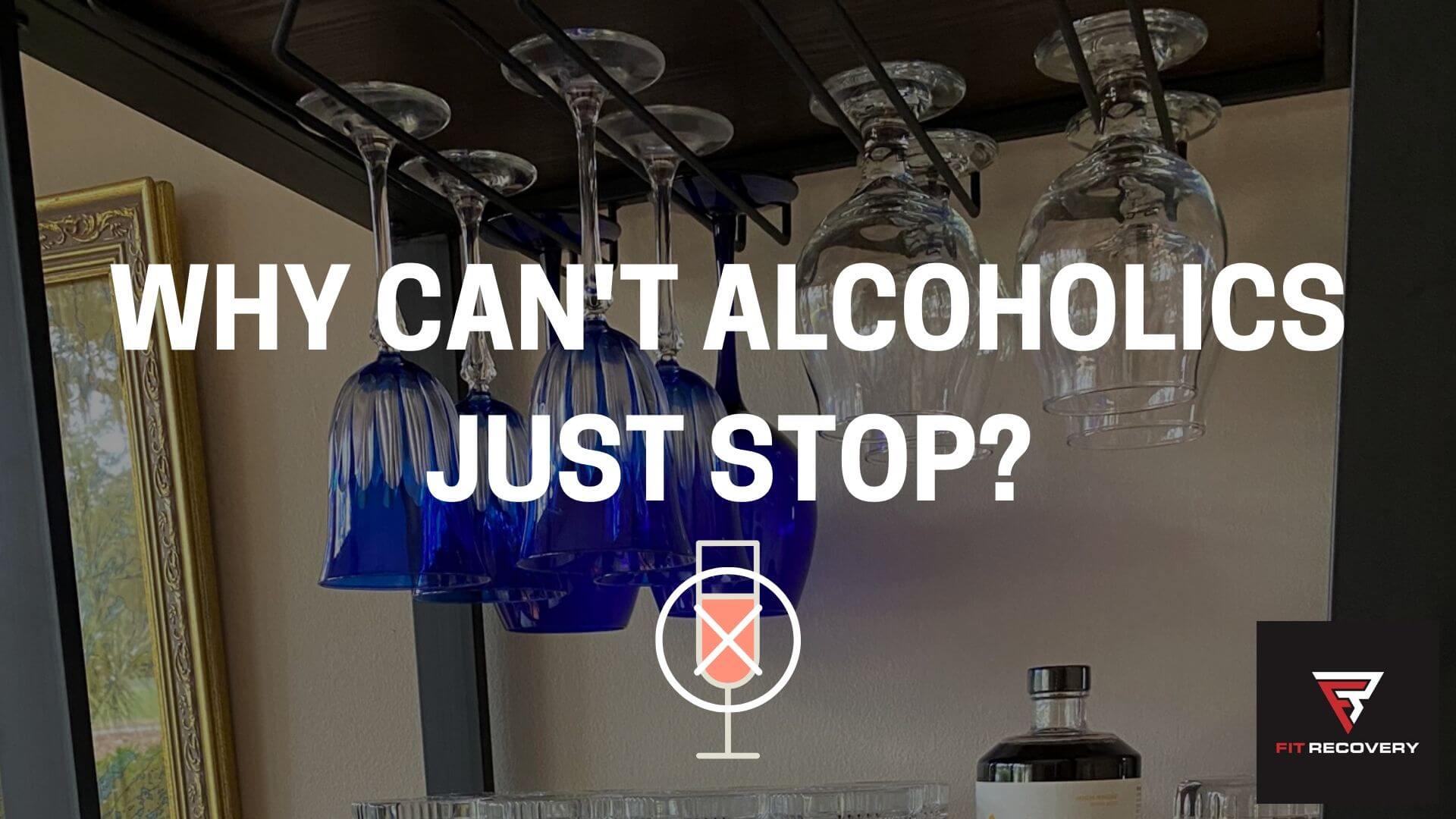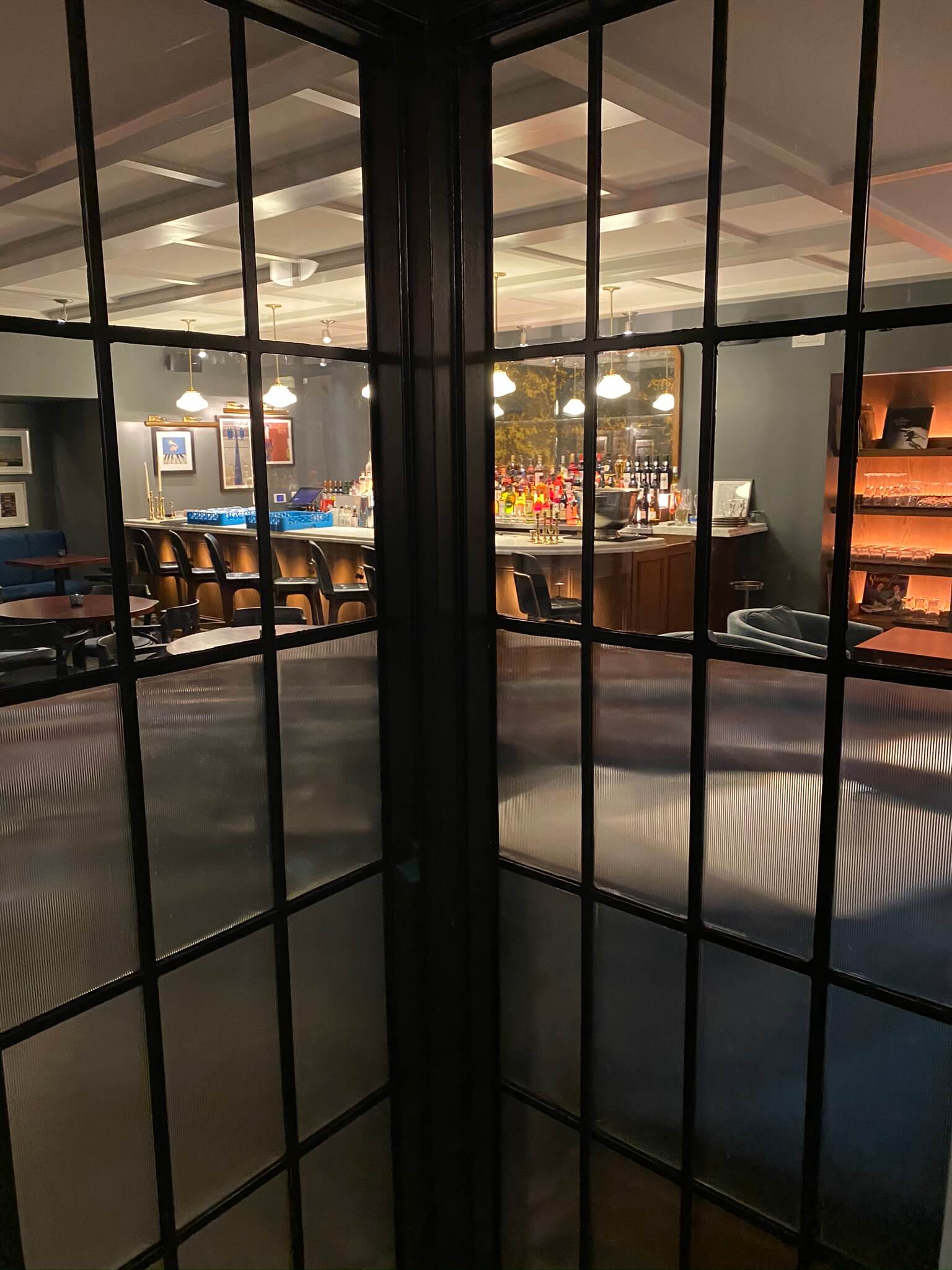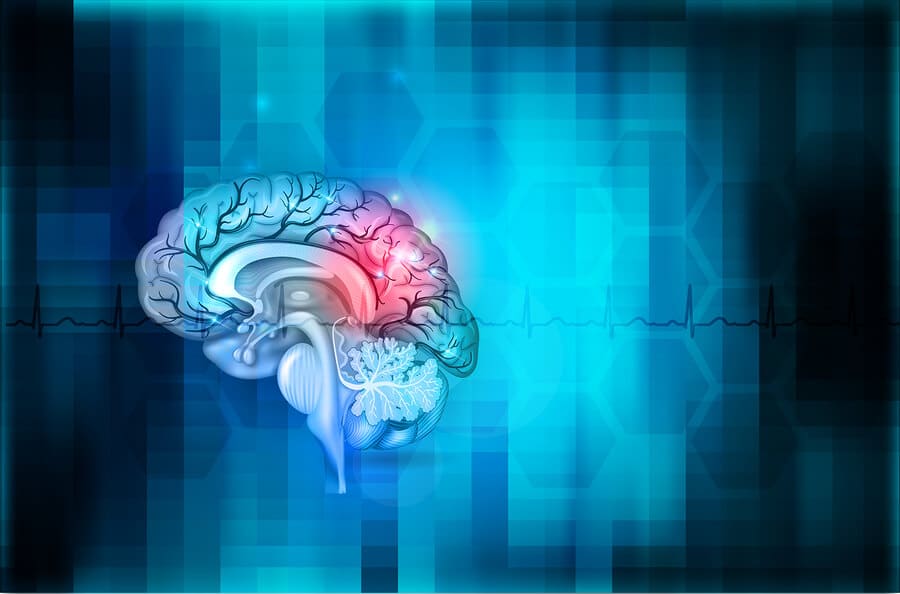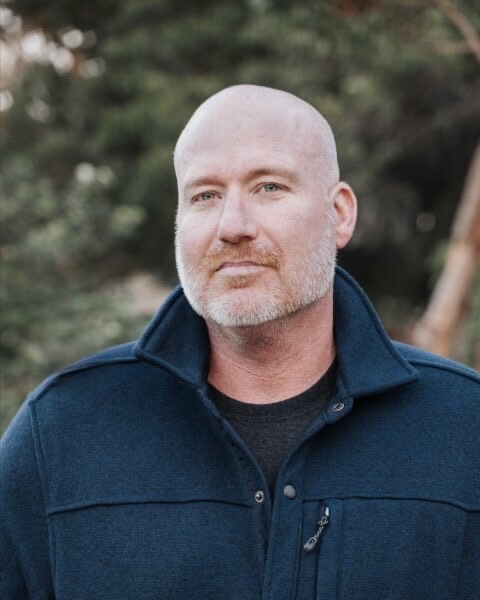If you’re thinking, “when I start drinking I can’t stop,” I’m about to shed light on a subject that most people have no clue about.
The subject?
Why on earth are most individuals able to stop after one or two drinks, while the “alcoholic drinker” consistently drinks more than they should, often leading to negative consequences?

I can tell you from firsthand experience, my friends, family, and coworkers never understood why I couldn’t just “drink like a gentleman.”
They weren’t the only ones who were confused.
Most of society is ignorant on this topic, and along with this ignorance, you’ll also find a high percentage of people who lack empathy for alcoholics…and may even be disgusted by their behavior.
Can’t Stop Drinking?
I wonder what these people would say if I told them that essentially, there is just one main difference between them and an alcoholic drinker, and that difference has to do with the alcoholic lacking a certain “alarm system” in their brain, which responsible drinkers are equipped with.
While there are obviously a great many deciding factors why some people can’t control their consumption – such as hypoglycemia, self-medicating symptoms of mental disorders, etc. – the focus of this article is to bring awareness to something that I believe is the “Master Reason” why alcoholics can’t use alcohol responsibly.
To properly lead up to this Master Reason, let’s take a brief walk down memory lane together, to a difficult time of my story of life…
I Couldn’t Stop Partying In California
For several years in my early 20’s living in California, I was an alcoholic of the “binge drinking” variety. I tried to control my drinking but failed time and time again.
I had discipline in most areas of life, but when it came to alcohol, that discipline went straight out the window.
I felt hopeless.
Why could my friends decide when they had drank enough, yet no matter what the situation, I almost always ended up consuming way more than I intended?
It wasn’t until I moved to New York many years later, that I learned the main reason I couldn’t control it was because I was lacking specific “bells, buzzers, and whistles.”
I’ll explain more about this in a bit, but before I do, you need a little back story on how I learned about this phenomenon.
Getting out of Control in New York
When I was 27 years old, I moved to upstate New York to play lead guitar in a reggae/rock/funk band. Within the first 48 hours stepping foot off the airplane in Syracuse, New York, I had blacked, taken ecstasy, spent about $200 on alcohol and drugs, and I was also robbed for $200 while I was passed out at the end of my bender.

I awoke with a bad hangover, and upon checking my wallet to see how much I had spent, I sadly noticed that I only had $100 left, which I needed to buy food and smokes until I found a job and got my first paycheck.
Right then, I knew I had to start doing things differently in New York.
Unfortunately, knowing what to do and actually doing it are two extremely different things.
In less than 90 days of living in New York, I found myself in a jail cell, and I was being charged with two felonies. One for drinking and driving, the other for driving on a suspended license.
This was my third DUI, and luckily, it was also the end of my binge-drinking career.
Facing a few years in prison in a state that I had just moved to was scary, and when I got the charges dropped to misdemeanors and let out of jail after just four days, something inside of me changed.
Believe it or not, since that “close call,” I have not blacked out, been arrested, or drank to the point of a hangover ever again.
My Mentor at the Deli
After I was released from jail, I lit up a cigarette and walked down the hill to wait for my friend to pick me up.
I had them drop me off at the deli where I had been working for two months so I could talk to my boss, because I found out he had a Help Wanted sign in the window…thinking I wasn’t getting out of jail anytime soon.
My boss, John, was the owner of a family deli in upstate New York.
He had taken a liking to me right off the bat, but after this incident where I came so close to really screwing up my life, he became my mentor.
He took me for a drive, and while we cruised the town, he told me about the “buzzers, bells, and whistles.”
The Buzzers, Bells, and Whistles That Help
John told me that he never had a problem with drinking, though friends and family members of his constantly drank to excess and experienced negative consequences often.
John’s reason he was always able to stop drinking after a couple of drinks?
He told me that after a couple of drinks, buzzers, bells, and whistles start going off in his head.
These loud alarms would fire off in his brain, and they would get his attention. These were not subtle alarms. It was a loud and effective alarm system which would get John’s attention, and cause him to start thinking about all of the negative consequences that could happen to him if he continued to drink alcohol after the buzzers, bells, and whistles went off in his head.
This was a completely foreign subject to me.
Not once in my entire life had I heard any such alarms going off in my head, warning me to stop drinking “or else.”
After he explained this phenomenon to me, things started making a lot of sense. Now I realized how most people were able to control their drinking.
Furthermore, I realized that I not only was missing this “factory installed” alarm system, but I had actually wired my brain to have a completely opposite internal noise.
Brain Research on Addiction Shows Why People Can’t Stop Drinking

Even if I had to wake up early for work in the morning, this would not stop me from getting drunk the day before. A normal person would have a drink or a couple of drinks, then the buzzers would go off and tell them they’ve had enough, and they would stop.
I would have a couple of drinks, and instead of hearing the buzzers go off telling me to stop because I had work early in the morning, it was like my brain was constantly saying “GOOOOOOOOOOOOO!!!!!!!!!”
It was “go time,” and instead of putting on the brakes, I would hold my foot down on the accelerator and floor it.
It wasn’t until a few years ago that I learned why this happens.
Once a social drinker becomes addicted to alcohol, significant changes occur in their brain. Research with mice in the 1960’s revealed that addiction affects the midbrain, not our prefrontal cortex.
The midbrain is our primitive alligator brain, which is responsible for keeping us alive. It doesn’t care what is right and wrong, like the prefrontal cortex does.

After an individual has become addicted to alcohol, their midbrain links survival itself to using alcohol. Normally, at the hierarchy of survival is water, food, shelter, sex, etc.
When a person becomes an alcoholic, the drug known as alcohol is placed above everything else in the hierarchy.
Here is how the hierarchy looks to an alcoholic:
ALCOHOL
Water
Food
Shelter
Sex
As you can imagine, this can lead to some very poor decision-making in life.
It’s no wonder why my brain would scream “GO” after I had that first drink…it was trying to help me survive. The midbrain changes that occur when an individual crosses the invisible line from responsible drinker to alcoholic also lead to another pattern.
Now, the prefrontal cortex gets completely bypassed in the decision-making process. The prefrontal cortex is our logical brain, and we use it often when we make decisions and think about consequences.
I’ve heard numerous addiction professionals say it’s like having a car with no brakes. You may very well want to stop, but without brakes, you cannot.
Final Thoughts
So there you have it. The top reason alcoholics can’t stop after one drink is because they lack the bells, buzzers, and whistles that go off in the minds of most individuals.
Instead of hearing these internal alarm sounds telling them to stop drinking, they have a voice that says “Go!”
Social drinkers don’t understand why alcoholics can’t control their drinking. However, they can understand driving a car with no brakes and not being able to stop the car.
In the matter of alcoholics, their brains link survival itself to using alcohol, and the prefrontal cortex gets bypassed in the decision making process.
Stopping is not impossible, but it’s very difficult for alcoholics to do so. After an alcoholic quits drinking, they may still lack the bells, buzzers, and whistles alarm system for many months, years, or even life.
That’s why most alcoholics quit altogether, rather than try to become responsible drinkers. Some do develop these internal alarms and become responsible drinkers later on, but that’s a topic for another discussion.
I’m of the opinion that alcohol is far-overrated anyways. It’s a cell-dehydrator, it’s very acidic, it depletes b vitamins from the body, and I think there are much healthier and more pleasant ways to catch a buzz than alcohol.
As the author of this blog, Chris Scott says, “Drinking Sucks!”…and I wholeheartedly agree with this statement!

Matt Finch is the proprietor of Opiate Addiction Support, which helps men and women that are dependent on opiates learn how to get off these drugs without getting sick. He is a former alcohol and opiate addict and a former Substance Abuse Counselor at an Opiate Treatment Program (OTP). Matt has since become a Strategic Intervention Coach, Speaker, Author, and Opiate Recovery Specialist.
FAQ:
Why can I not stop when I start?
Alcohol dependence is a brain disorder that is reinforced by repetition, biochemical imbalances, and stale subconscious beliefs about the necessity of alcohol. The good news is that all of these contributing factors can be addressed and resolved. Rebalancing your brain and body with natural supplementation is a great first step to reclaiming control over your life.
How can I stop ?
Alcohol dependence is sustained by biochemical imbalances that can be resolved through supplementation and lifestyle changes. People also have different “reasons” for drinking, and these can be addressed through psychological interventions including cognitive behavioral therapy (CBT), neuro-linguistic programming (NLP), and other methods. The key is to determine what your “Missing Links” are and tackle them accordingly.
How do I know I’m an alcoholic?
Research shows that there are multiple types of alcohol addiction, including binge drinkers who can abstain for long periods but always lose control when they do drink. If you find yourself in an internal battle over how much you drink, or if you crave alcohol at inconvenient or socially inappropriate times, these are good reasons to reassess your relationship with alcohol.
What are the first signs of liver damage from alcohol?
The first signs of alcoholic liver damage can include swelling or pain in the upper right side of the abdomen, nausea or vomiting, extreme fatigue, and yellowing of the eyes or fingernails. Milk thistle is a popular supplement that has been shown to be effective for reducing liver damage from alcohol use.

Author
-
Matt Finch, the Fit Recovery Head Coach, embodies the power of transformation. With over 13 years of freedom from both alcohol and opioids, he has turned his personal journey into a beacon of hope for others. Previously a Certified Substance Abuse Counselor at an outpatient treatment center, he has dedicated his life to empowering individuals to break free from the chains of addiction. Through his innovative recovery coaching programs, he has joined forces with Chris Scott and Fit Recovery, inspiring thousands to overcome their struggles. By offering one-on-one recovery coaching, engaging group sessions, and dynamic online courses, along with his uplifting podcast, "The Matt Finch Show: Fit Recovery 2.0 Members-Only Alcohol-Free Lifestyle Podcast," he illuminates a path to a healthier, addiction-free lifestyle.
View all posts Fit Recovery Head Coach








I’ve been dealing with this “THIQ Factor” in a 34 year horrid marriage to an alcoholic and who at the age of 69 just yesterday when we celebrated our Christmas here, he remains a falling down drunk. Until or unless one realizes they are allergic to alcohol because they cannot stop, they will never be able to stop and live a decent or great life. I hope you will stay reinforced in that there is taht little THIQ Factor that is a very long word when defined, that is in the brain of alcoholics. Quitting all alcohol is the key… Read more »
Not just alcoholics. I know “moderate social drinkers” who can’t stop after “just one drink”. In fact I’m one of them.
I Hear what is being said but I don’t think we don’t hear the bells and whistles, we hear them but I think we have a different understanding, we like the effects of the getting drunk, eating or having sex and just can’t seem to stop or just want more to fulfil or desires. we know it’s bad when we are doing it but we want it and we don’t want someone to stop us from getting it. I’m not sure if this is from up brining and being told no you can’t have x so when you are finally… Read more »
Question is why. Why do some people lack that alarm? And better yet, how do you change it? I have a very addictive personality. Food, sex, alcohol… I only drink after I’m home for the evening but I have several drinks and can’t go a night without. Unless I’m really Isick with a virus or something. So frustrating. I hate the dependency. I went to AA for 3 months. Every day. But I never quit drinking. And I felt like I was a lightweight compared to the stories I heard in there. A lot of holier than thou former drinkers… Read more »
Hi Steve, great points. I do delve into these questions on this site. You might like my article on 3 cheap supplements that can help you feel better after quitting drinking, and my more recent article on the biochemical root causes of alcohol addiction.
I’ve been obsessed with these questions for years. Click around this site and you’ll find some answers.
Thank you for this helpful article – much appreciated – I think maybe though you might want to change “buzzard” (a bird!) to buzzer:)
Haha thanks Krista!